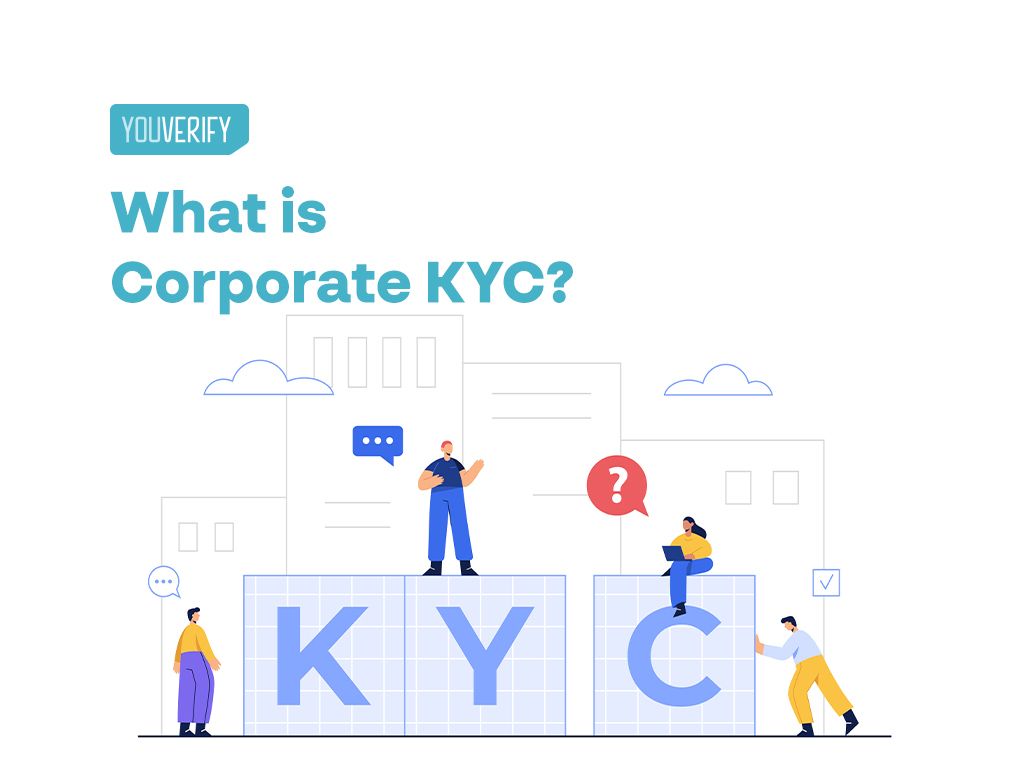Corporate KYC, Know Your Customer, or Know Your Client, is the process of validating the legitimacy of a business or corporate entity and beneficiary owners to meet AML and KYC compliance during the KYC onboarding process. This is most often referred to as Know Your Client because it is a B2B process compared to B2C transactions that are more referred to as Know Your Customer.
Corporate KYC is kyc meaning in business. It is just as important as individual KYC, as it is important that a business validate another business before transacting with them. This is to satisfy AML requirements and identify associated risks.
In this article, we will be discussing what is corporate KYC, or KYC onboarding for businesses, is; why KYC for companies is important; KYC requirements for corporates; the legal documents; and how to perform corporate KYC with automated tools.
Let's dive right in!

What is Corporate KYC?
An overview of Corporate KYC: What does KYC for Companies mean?
Corporate KYC checks the legitimacy of businesses.
Although KYC is a term that most businesses and individuals in the finance industry are familiar with, it is most often used to refer to customer-business relationships. This is because many tend to have the idea that KYC processes are only used by businesses to verify the identity of single customers. However, the KYC onboarding processes are also used to validate corporate entities. This process is called corporate KYC.
Read more - What are the Different Types of KYC?
Why is Corporate KYC important?
Corporate KYC is important because it helps a business identify its customer, which, in this case, is another business or corporate entity. It is a process of customer onboarding during which a business identifies potential risks in the relationship and defines subsequent actions. It can be used in key activities like when a business fills out a loan application or requests to enter a partnership with another business.
Corporate KYC, or KYC for companies, is important in combating financial crimes, money laundering, and counter-terrorist funding, among other illegal activities. KYC and AML regulations are stricter than ever due to the ever-rising threat in the finance industry.
Although very important, a corporate KYC process could become very cumbersome, which is why most organizations today make use of the best identity verification service. This helps save resources, time, and cost while meeting compliance requirements.
Read more - Why is KYC Important for financial institutions?
What are the required documents for Corporate KYC?
What are the corporate KYC documents or requirements for corporates? The following are the most important corporate kyc documents a company needs to provide during corporate KYC:
- Tax numbers
- Beneficiary's details (e.g., passport, government-issued IDs, etc.)
- List of trustees
- Copy of certificate of incorporation
- Bank statement and returns
However, do note that KYC processes vary depending on the country and industry. For example, in the finance industry, kyc for commercial banking is the most strict and requires proper validation and a series of documents, especially during credit or loan applications. However, the telecommunication industry has more lax requirements, although it is held to regulation standards too. However, you are generally required to verify that the company is legally registered.
We covered everything on KYC documents in this article - What is a KYC Document.
How to automate corporate KYC process
Corporate KYC processes could be cumbersome, resource-draining, and costly. This is why most organizations employ the services of KYC onboarding automation software solutions.
Achieving KYC onboarding is easy when using Youverify’s operating system or YV OS. This innovative software is Youverify’s flagship product that simplifies the whole Know Your Customer process for you. You can create automated forms that perform a preset action based on the KYC needs of your business after verifying the identity and credentials of potential customers.
Book a demo session today to see how youverify can help automate your business’s KYC due diligence! Also, feel free to contact us here for any questions.
Bottom line
Understanding what corporate KYC is is very important for identifying legal entities or the ones involved in illicit acts. This could also be a lifesaver for your organisation's image in general and could help avoid sanctions. Do well to carry out corporate KYC before establishing any business relationship with corporate entities, as the case may be.
INTERESTING READ: Biometric Authentication: Advantages and Disadvantages
